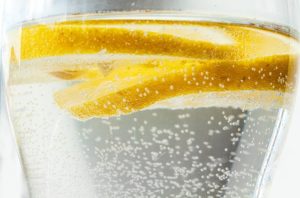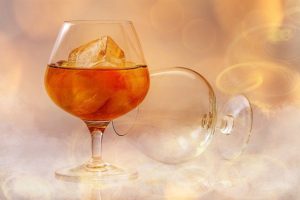During the Covid pandemic, many people have altered their drinking habits. Some, as a way to deal with the stress and isolation of the pandemic, have turned to drinking more. However, I know a number of people who have actually told me that they’re drinking less. One friend stopped drinking for a month last year and hasn’t had a drink since then. Other friends took up the challenge of a Dry January as a kind of New Year’s resolution and as a way to begin the year with a detox.
Certainly the stress, uncertainty and disruption from the pandemic would seem to have altered peoples’ drinking habits, in which they drink more to cope. And while it’s still too early to measure through research, mental health providers believe that this is the case. However, what I find more interesting is the number of people who have stopped drinking or cut way back on their alcohol consumption.
I count myself in the camp of those people who have cut back. Initially, I quit drinking alcohol last year because it aggravated a series of vertigo  episodes that I had been having. However, after quitting for a few weeks, I noticed a couple of things. First, I felt a lot better. I began sleeping through the night, was less dehydrated during the day, I had more energy and the vertigo got much better. The second thing I noticed was that due to being at home and not socializing during the pandemic, it became much easier not to drink. That said, I haven’t completely given up having an occasional cocktail, but now I only have a drink every couple of weeks.
episodes that I had been having. However, after quitting for a few weeks, I noticed a couple of things. First, I felt a lot better. I began sleeping through the night, was less dehydrated during the day, I had more energy and the vertigo got much better. The second thing I noticed was that due to being at home and not socializing during the pandemic, it became much easier not to drink. That said, I haven’t completely given up having an occasional cocktail, but now I only have a drink every couple of weeks.
While I’m not talking about problem drinking here, it has become clear that the pandemic has resulted in a number of people reassessing their relationship with alcohol. It also seems clear that people are coming up with different answers.
In Chinese medicine, there are different answers when it comes to the nature of alcohol, too. Small amounts are considered to be medicinal. In fact some therapeutic herbs are steeped in alcohol to enhance their effectiveness. In addition, alcohol stimulates the circulation of blood and Qi (or energy), as it opens up the tiny capillaries in your body. In moderate amounts alcohol is dispersing. It loosens you up, gives you a sense of well-being and helps you let go of the horrible day you just had.
However, in Chinese medicine, alcohol in greater amounts tends to create a certain amount of heat and dampness in your body. Heat causes flushing, broken capillaries, restlessness and irritability. Dampness comes from your body’s inability to metabolize fluids well, causing you to get boggy and retain water. Dampness can take the form of edema, excess fat, yeast and an overall feeling of heaviness.
In Chinese medicine what you drink also matters. For example, red wine tends to be particularly warming, and white wine is only slightly cooler. I  can personally confirm this; after a glass of red wine my face becomes red and hot, but after a glass of white not quite as much. Spirits, such as gin, scotch, vodka, and tequila are also hot and dampening.
can personally confirm this; after a glass of red wine my face becomes red and hot, but after a glass of white not quite as much. Spirits, such as gin, scotch, vodka, and tequila are also hot and dampening.
In contrast, beer is energetically cool. Think about it—on a hot day slugging down a cold beer seems far more appealing than downing a glass of cool white wine. That’s because energetically the beer will cool you off while the wine will make you feel warmer. Even though beer is cooling, it still causes dampness, however the more bitter the beer, the less dampening it is.
Any of the effects of alcohol, whether it’s damp or heat or a hangover, are all dependent on how much you drink. In the short term, even a couple of drinks interrupt your sleep patterns, cause you to become dehydrated, give you a headache, upset your stomach and raise your risk of accidents. In the long term overdrinking can elevate your risk for developing breast cancer, stroke, heart disease and liver disease.
My point is that no matter what you drink, this pandemic is an opportunity for you to take a look at how alcohol actually makes you feel. You may decide, like Sober Curious author Ruby Warrington, that drinking alcohol isn’t for you. You may try cutting back for a while and discover you feel far better without regular cocktails in your life. Or you may also find that you’re completely comfortable with your drinking habits. Regardless of what you decide personally, it’s interesting that an unexpected result of the Covid pandemic is that many people are recalibrating their alcohol consumption.



